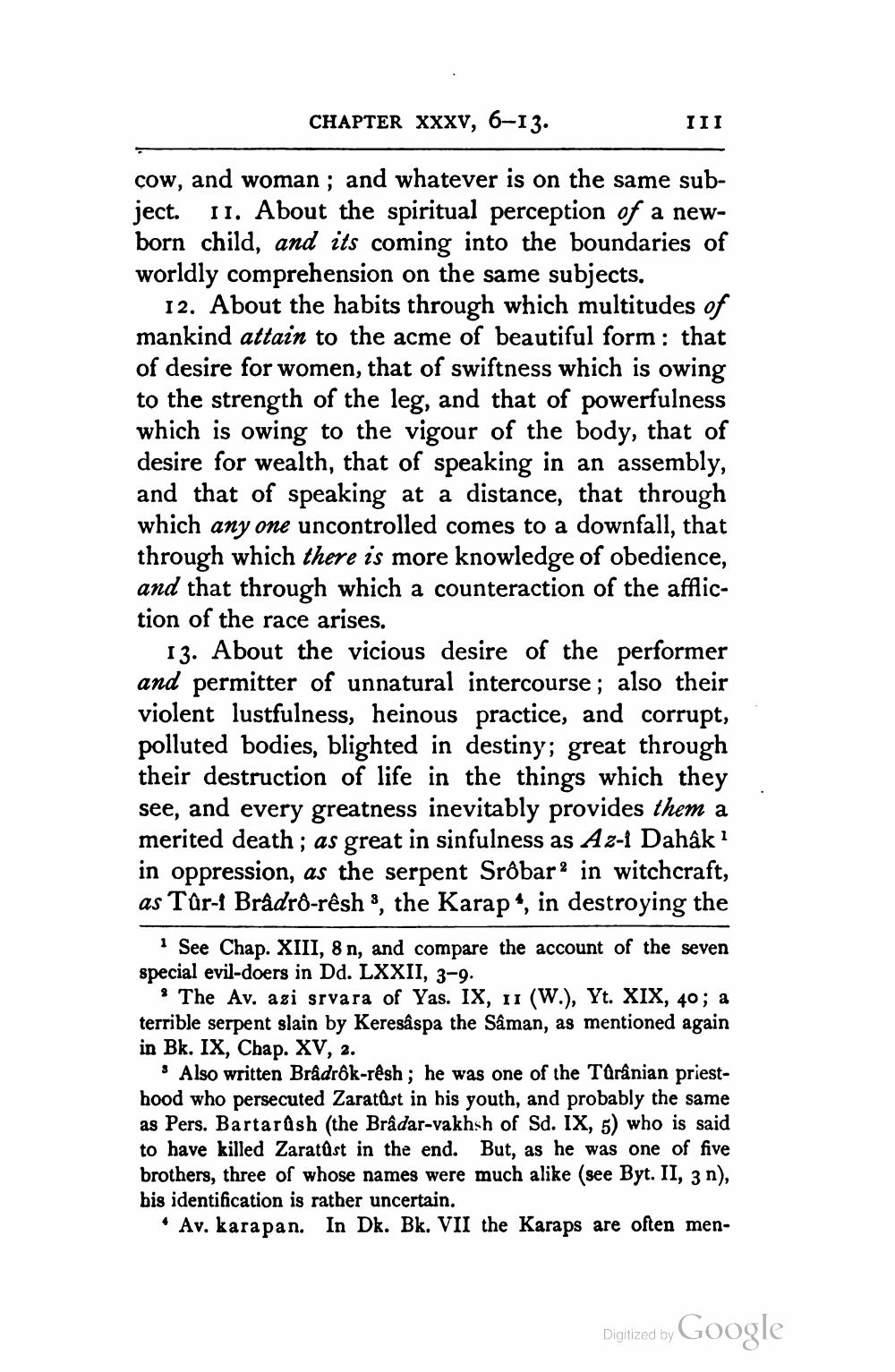________________
CHAPTER XXXV, 6-13.
cow, and woman; and whatever is on the same subject. II. About the spiritual perception of a newborn child, and its coming into the boundaries of worldly comprehension on the same subjects.
12. About the habits through which multitudes of mankind attain to the acme of beautiful form: that of desire for women, that of swiftness which is owing to the strength of the leg, and that of powerfulness which is owing to the vigour of the body, that of desire for wealth, that of speaking in an assembly, and that of speaking at a distance, that through which any one uncontrolled comes to a downfall, that through which there is more knowledge of obedience, and that through which a counteraction of the affliction of the race arises.
III
13. About the vicious desire of the performer and permitter of unnatural intercourse; also their violent lustfulness, heinous practice, and corrupt, polluted bodies, blighted in destiny; great through their destruction of life in the things which they see, and every greatness inevitably provides them a merited death; as great in sinfulness as Az-i Dahâk1 in oppression, as the serpent Srôbar2 in witchcraft, as Tûr-i Brâdrô-rêsh, the Karap, in destroying the
1 See Chap. XIII, 8 n, and compare the account of the seven special evil-doers in Dd. LXXII, 3-9.
The Av. azi srvara of Yas. IX, 11 (W.), Yt. XIX, 40; a terrible serpent slain by Keresâspa the Sâman, as mentioned again in Bk. IX, Chap. XV, 2.
Also written Brâdrôk-rêsh; he was one of the Târânian priesthood who persecuted Zaratust in his youth, and probably the same as Pers. Bartarush (the Brâdar-vakhsh of Sd. IX, 5) who is said to have killed Zaratust in the end. But, as he was one of five brothers, three of whose names were much alike (see Byt. II, 3 n), bis identification is rather uncertain.
Av. karapan. In Dk. Bk. VII the Karaps are often men
Digitized by Google




